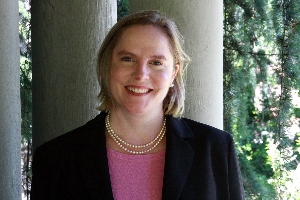Rebecca Copenhaver
Professor of Philosophy, Lewis and Clark College
“Philosophy and Modern Memory”
When we remember, what are we thinking about? Most of us assume that we think about the past, in particular, our past experiences. When we remember where we were when a major event happened, we remember what it was like for us to have the experiences we had then. This is the cinematic picture of remembering: when we remember, we are projected into the perspectives of our past selves.
But if we travel three hundred years into the past, we find two philosophers—John Locke and Thomas Reid—whose theories of memory are very different from this common picture. For Locke, remembering is not mainly about the past, and it includes not just recollection, but also contemplation, attention, reverie, daydreaming, and study. Remembering allows us to contemplate a problem, navigate an environment, attend to a story, or plan for the future. And, according to Reid, we do not remember our past experiences. We remember the past itself. Because we experienced the world in the past, we remember that same world today.
Perhaps Locke and Reid have something to teach us about memory: how it releases us from a persistent specious present that would keep the world always new, yet leave it always alien. Without remembering, the present would be incomprehensible and the future would be unimaginable. Remembering makes the world less strange; it reestablishes connections to things already experienced, helps make sense of the present, and enables a vision of the future.
Rebecca Copenhaver is Professor of Philosophy at Lewis & Clark College, where she has taught since 2001. Her research interests are in Modern Philosophy and Philosophy of Mind. Her work has appeared in the Canadian Journal of Philosophy, Res Philosophica, Pacific Philosophical Quarterly, Philosophical Quarterly, History of Philosophy Quarterly, The Journal of the History of Philosophy, The British Journal for the History of Philosophy, and The Oxford Handbook on British Philosophy in the Eighteenth Century. She is co-author with Brian P. Copenhaver of From Kant to Croce: Modern Philosophy in Italy, 1800–1950 (University of Toronto Press, 2012). She is currently writing a book on Thomas Reid: A Natural Kind of Magic: Thomas Reid’s Science of Mind.




